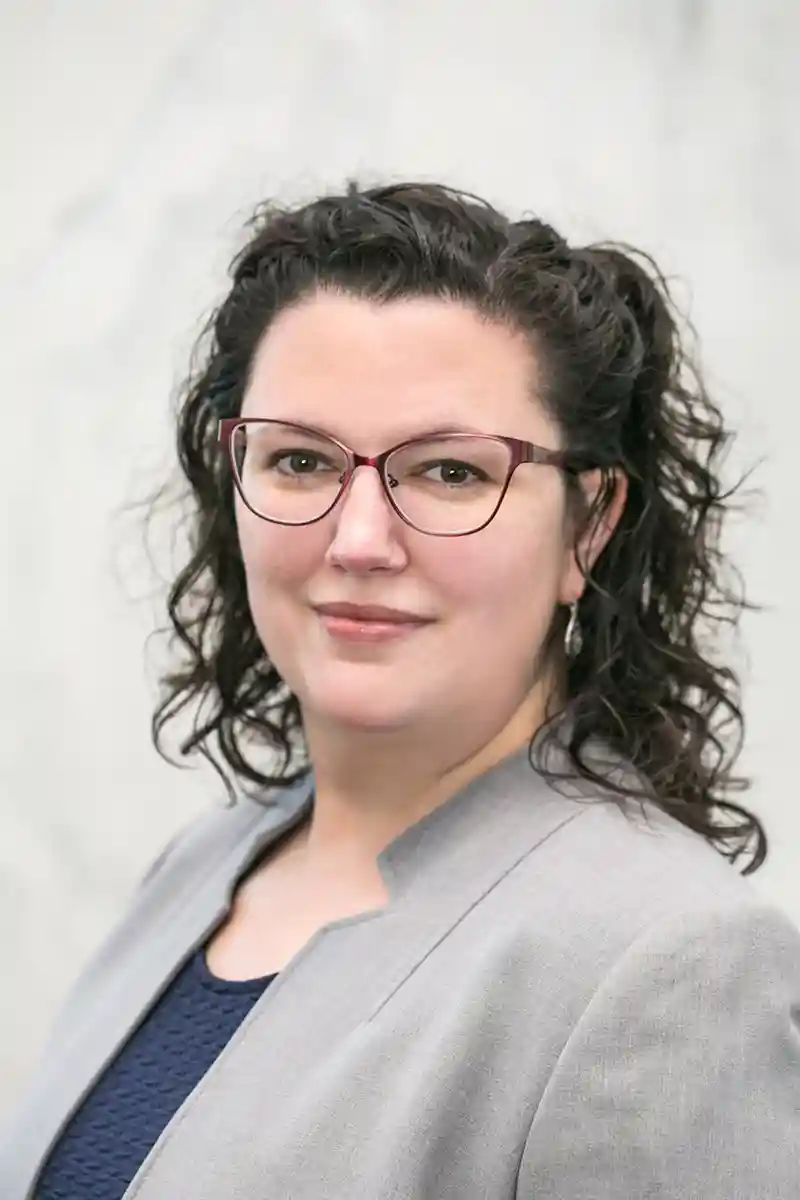Fellow advanced health information sharing
Meet Candace Norton
As an undergraduate, Candace Norton volunteered with the Drop-In Center, a local non-profit in Roanoke, Virginia, that provided HIV and AIDS outreach and advocacy services. During the experience, Norton recognized the immediate need to provide accurate health information directly to community members through channels that were not only related to doctor’s offices or clinics.

The National Library of Medicine Associate Fellowship Program allowed Candace Norton the opportunity to enhance adverse event search filters and conduct bibliometric analyses. She is an information professional specialized in health sciences librarianship.
Norton entered her graduate program knowing she wanted to pursue a health sciences concentration. She received a master’s degree in library and information science from Texas Woman’s University.
While exploring career options at a Special Libraries Association (SLA) Pharmaceutical and Health Technology Division conference, Norton participated in a one-on-one mentoring session with an alumna of the National Institutes of Health (NIH) National Library of Medicine (NLM) Associate Fellowship Program. Norton never forgot the enlightening conversation. She applied to the program shortly after she completed her degree and was accepted.
The NLM Associate Fellowship Program is designed to provide a broad foundation in health sciences information services and to prepare librarians for future leadership roles at health sciences libraries and in health services research.
As an associate fellow at NLM in Bethesda, Maryland, Norton was mentored by program coordinator Kathel Dunn, Ph.D.
“The NIH campus community was full of enrichment opportunities from guest lectures to the Big Read Program where the entire campus was encouraged to read the same book and participate in a book-club style discussion before attending a larger event on campus where the author was invited to speak,” said Norton.
During her first year of research, Norton collaborated with an NLM librarian who worked closely with the Food and Drug Administration (FDA) to enhance adverse-event (AE) search filters used in pharmacovigilance, the pharmacological science related to drug safety. Her research allowed for FDA regulatory review teams to monitor and better detect possible AEs while drugs are in the early clinical trial phases.
An adverse drug event (ADE) occurs when a patient is harmed or injured from a medical intervention related to a drug, such as prescriptions and other administered medication.
Norton’s AE literature detection research could reduce the number of ADEs that patients experience by increasing the speed and accuracy with which regulatory reviewers can identify and assess AEs in the drug development and drug approvals timelines.
A second project during her first year investigated the impact of NLM resources using bibliometric analyses. Norton explained, “A bibliometric analysis refers to the practice of applying statistical methods and study to bibliographies.”
This research project looked at how NLM resources are being used in biomedical research by exploring how researchers are citing the resources in their published journal articles. The goal of the investigation was to determine if bibliometric analyses can be used in conjunction with other usage metrics to evaluate product impact and inform future explorations on product impact assessments.
During her second year of research while in residence at the NIH Library, Norton was closely involved with the NIH Library leadership team to revise the internal working group and team structures to better support alignment with the library’s strategic objectives. Norton also had the opportunity to meet with the Bibliometrics and Data Services team leadership to undergo extensive training in bibliometric analysis, data management, and curriculum design and instruction.
All of Norton’s research shared the central theme of how individuals can make use of the published biomedical literature for different purposes. For example, the literature can be used to find early indicators of AEs, evaluate resource impact and reach, and analyze key performance indicators relative to scholarly communications and program evaluation.
“The fellowship was a gift of an opportunity to really explore the career possibilities that were open to me and how I could grow my existing skill set in so many different, yet complementary, directions,” Norton said.
After her two-year fellowship ended, Norton was hired by the NIH Library.
“I am more confident in my professional competence. I am better connected with other members of my professional community and have secured employment opportunities that are both intellectually stimulating and of benefit to the communities I live in,” Norton expressed.
Norton actively participates in SLA and is chair of the Pharmaceutical and Health Technology Division.
The NLM program is funded by NIH and administered through the U.S. Department of Energy’s (DOE) Oak Ridge Institute for Science and Education (ORISE). ORISE is managed for DOE by ORAU.

